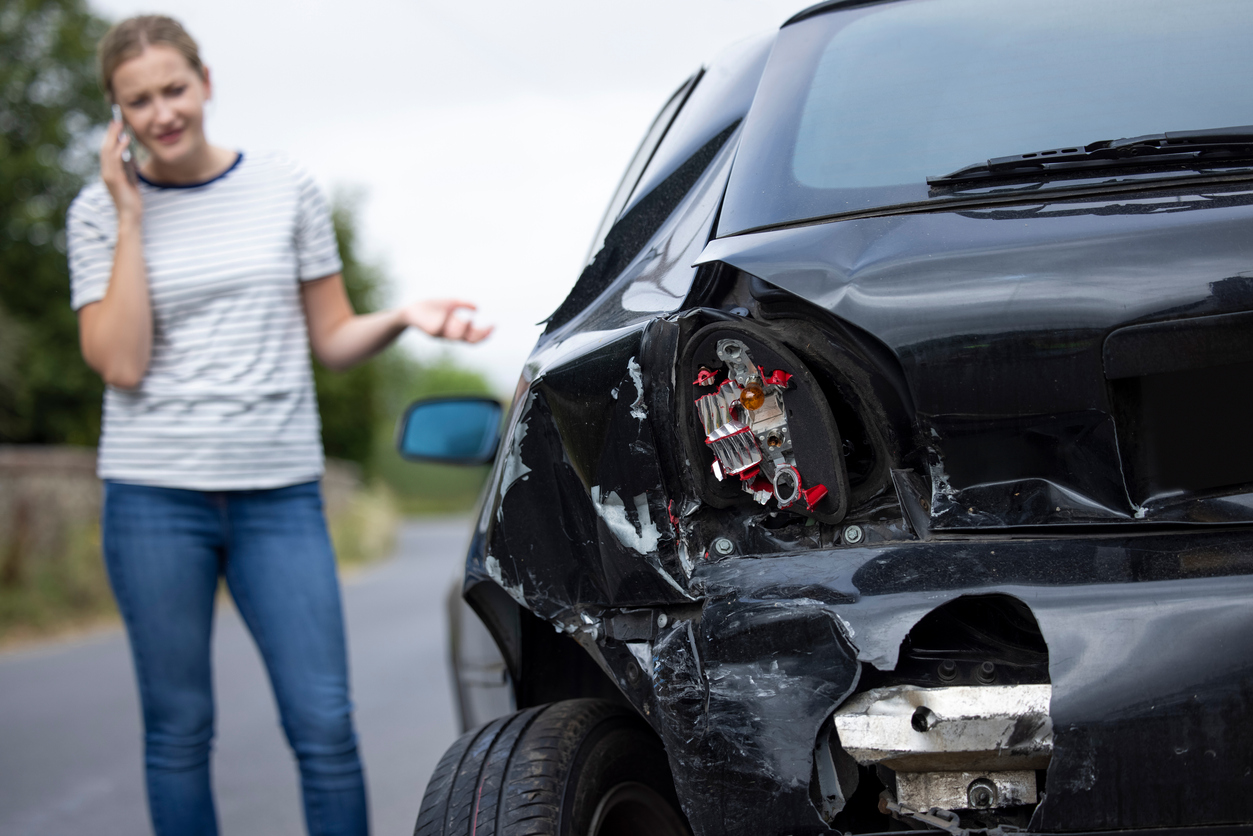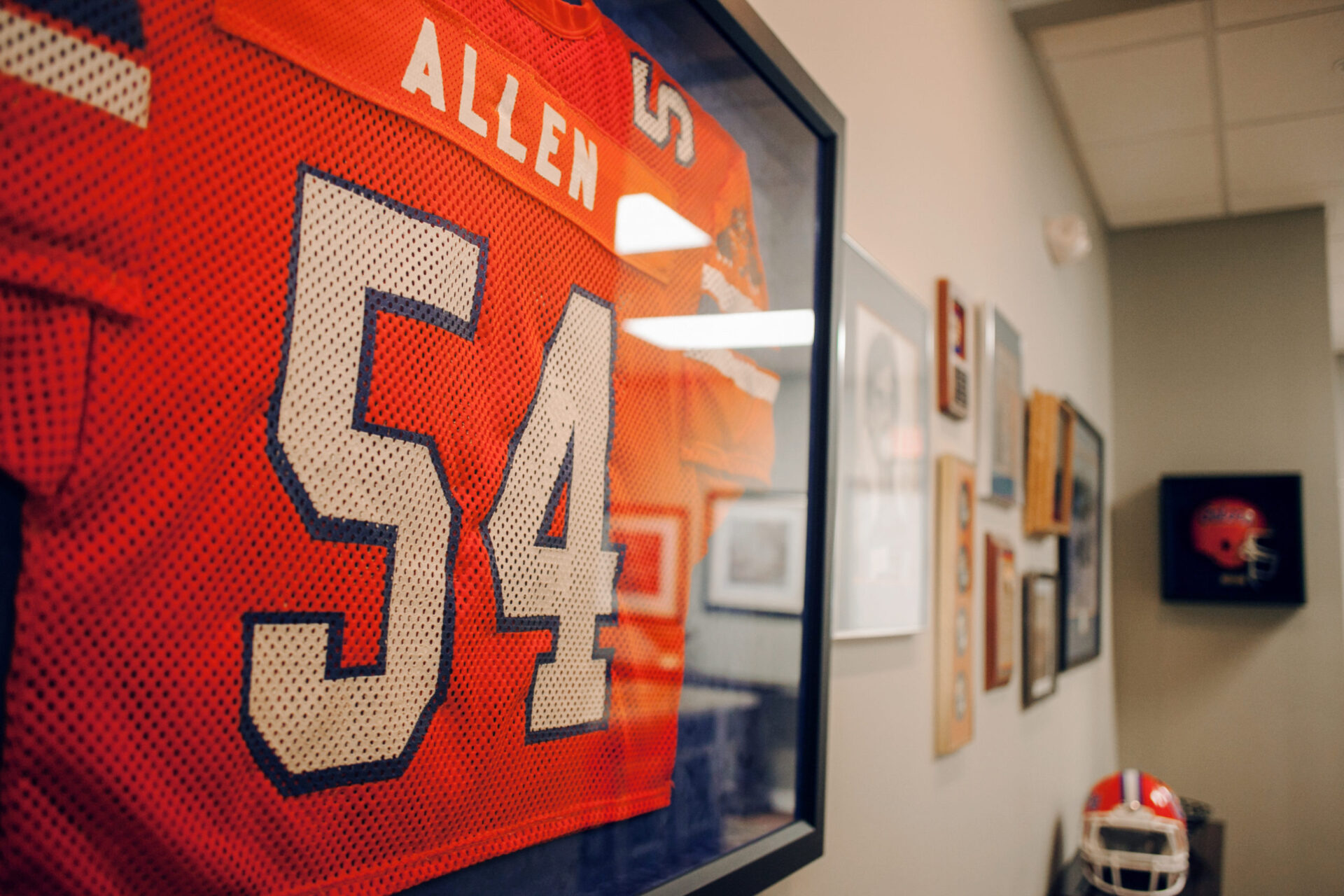Diminished Value Accident Claims in Gainesville, FL
Bill Allen | February 23, 2024 | Property Damage

Most property damage claims arise from car accident claims and similar vehicle accident claims (truck accidents, motorcycle accidents, boating accidents, and more). Indeed, vehicle accidents probably represent the most common type of personal injury claim.
Fortunately, most accidents don’t involve serious injury. But they almost always involve property damage. To resolve your property damage claim with the insurance company, you need to understand how these claims work, including and especially diminished value claims. Claims for damage to other types of property often work on similar principles.
Possible Resolutions to Your Vehicle Damage Claim
There are four main ways to resolve your property damage claim:
- The insurance company “totals” the car and offers you the car’s Actual Cash Value (see below) as it was immediately prior to the accident;
- You repair the car and the insurance company pays for the repairs;
- You repair the car and the insurance company pays for the repairs plus diminished value; or
- You take your case to court.
These options are more complicated than they might appear, and they might require you to hire a lawyer. You need to take into account the terms of your policy, comparative fault, whether the car is worth repairing, insurance deductibles and policy limits, and whether you want to keep your totaled car, among other considerations.
Some Relevant Terminology
To understand the way property damage claims work, you’re going to need to know the meanings of several “trade terms” (see below).
CarFax
CarFax is an internet service that allows you to look up a car’s “rap sheet” if you know its Vehicle Identification Number (VIN). For obvious reasons, it is quite useful for buyers of used cars, and it is the bane of sleazy used car merchants.
Actual Cash Value (ACV)
A car’s ACV is the amount of money you could sell it for in cash. The ACV depends on the type of car you drive, the condition of your car, its history, market conditions, and other factors.
“Totaled”
Your car is ‘totaled’ when the insurance company declares it is totaled. That is, when the estimated cost of repairs equals a certain percentage of the car’s ACV prior to the accident. If the insurance company declares your car totaled, it will offer you compensation based on your car’s previous ACV.
An insurance company might declare your car totaled even if you can still drive it. This introduces further legal complications if you want to continue driving the car (salvage title, rebuilt title, salvage value, and others).
Cost of Repairs
“Cost of repairs” is fairly self-explanatory; it’s the amount of money you need to restore your car, as far as possible, to the condition it enjoyed a split second before the accident. The only caveats are:
- Many insurance companies will require you to obtain more than one repair estimate, and they will typically demand that you select the cheapest repair.
- Even complete repairs might not be enough to restore your car to its ACV immediately before the accident.
“Cost of repairs” is the standard way to compensate you for a car accident when your vehicle is not totaled.
Diminished Value Claims
In a diminished value claim, you seek reimbursement for the loss in value to your car caused by an accident, either before or after repairs. There are three different measures of diminished value.
Immediate Diminished Value
Your car’s immediate diminished value is its loss in value Immediately after the accident. So if your car’s ACV was $25,000 immediately prior to the accident and $10,000 immediately after the accident, its inherent diminished value is $15,000. Immediate diminished value is normally an issue only in court, not in settlement negotiations.
Inherent Diminished Value
Your car’s “inherent diminished value” is a sum that represents your car’s loss in value that persists even after perfect repair. Sooner or later, when you offer the car for sale, a potential buyer will check your car on CarFax, learn that it’s been in an accident, and automatically lower their offer by X dollars, even if the car has been completely and perfectly repaired.
The sum ‘X’ represents your car’s inherent diminished value. It represents the buyer’s reluctance to pay more than a certain amount due solely to your car’s rap sheet. It is purely psychological in nature. Nevertheless, it is not abstract–it represents real, tangible money that stays in the buyer’s pocket instead of going into your pocket. If it applies, the insurance company would owe you this amount in addition to the cost of repairs.
Repair-Related Diminished Value
Your car’s repair-related diminished value is the diminution in the value of your car after complete but imperfect repairs. It’s not inherent diminished value, because inherent diminished value assumes perfect or near-perfect repairs. Instead, repair-related diminished value represents your car’s loss in value due to the limitations of the repairs themselves.
Your repairs might not have used original parts, for example, or the color of the paint might not match. If the extent of the damage is not enough to justify totaling the car, you might have to live with some lingering diminution in the value of your car. Like inherent diminished value, the insurance company would owe you this amount in addition to the cost of repairs.
The Problem With Diminished Value Claims
If you’ve lost $4,000 in your car’s ACV even after full repairs, you deserve $4,000 beyond the cost of repairs for inherent diminished value. If you lost another $3,000 in repair-related diminished value, the insurance company owes you that much too.
The problem is that insurance companies are often unwilling to pay extra for post-repair diminished value, especially inherent diminished value. If you want it, you might have to find a way to squeeze it out of the insurance company.
Consider Hiring a Lawyer
You probably don’t need a lawyer for a fender-bender. But with automobile prices skyrocketing, the value of a car accident-related property damage claim can be significant. If it is, you’re probably going to need a lawyer to help you negotiate with the insurance adjuster. Consider setting up a free initial consultation with a car accident lawyer.
Contact Our Gainesville Property Damage Law Firm in North Central Florida
If you need legal assistance, contact the Gainesville property damage lawyers at Allen Law Accident & Injury Lawyers at your nearest location to schedule a free consultation today.
We have three convenient locations in North Central Florida:
Allen Law Accident & Injury Lawyers – Gainesville office
2550 SW 76th St #150
Gainesville, FL 32608
(877) 255-3652
Allen Law Accident & Injury Lawyers – Downtown Gainesville
621 W University Ave
Gainesville, FL 32601
(866) 928-6292
Allen Law Accident & Injury Lawyers – Ocala Office
112 S Pine Ave
Ocala, FL 34471
(352) 351-3258
